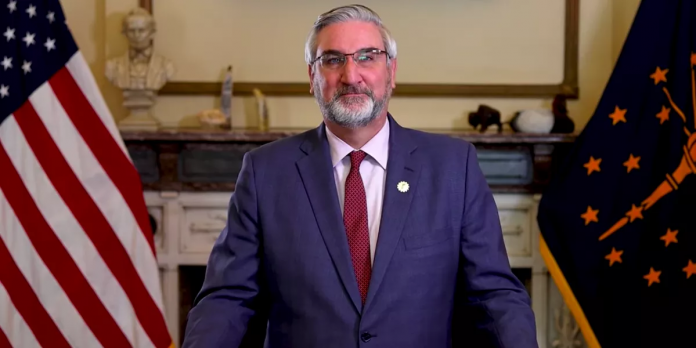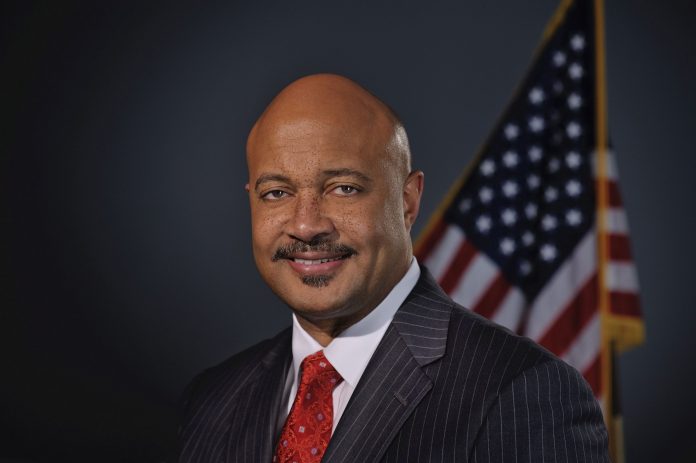The U.S. Environmental Protection Agency (EPA) and the Department of Justice today announced a proposed nationwide settlement with Home Depot U.S.A. Inc. resolving alleged violations of the EPA’s Lead Renovation, Repair and Painting (RRP) Rule at home renovations performed by Home Depot’s contractors across the country. The States of Utah, Massachusetts, and Rhode Island, which have EPA-authorized RRP programs, are joining the United States in this action.
The settlement, in a consent decree lodged with the District Court for the Northern District of Georgia, requires Home Depot to implement a comprehensive, corporate-wide program to ensure that the firms and contractors it hires to perform work are certified and trained to use lead-safe work practices to avoid spreading lead dust and paint chips during home renovation activities. Home Depot will also pay a $20.75 million penalty, the highest civil penalty obtained to date for a settlement under the Toxic Substances Control Act. Of the $20.75 million penalty, $750,000 will be paid to Utah, $732,000 to Massachusetts, and $50,000 to Rhode Island.
“Today’s settlement will significantly reduce children’s exposure to lead paint hazards,â€Â said Susan Bodine, Assistant Administrator for EPA’s Office of Enforcement and Compliance Assurance. “Home Depot will implement system-wide changes to ensure that contractors who perform work in homes constructed before 1978 are EPA-certified and follow lead-safe practices. EPA expects all renovation companies to ensure their contractors follow these critical laws that protect public health.â€
“These were serious violations. The stiff penalty Home Depot will pay reflects the importance of using certified firms and contractors in older home renovations,â€Â said Principal Deputy Assistant Attorney General Jonathan D. Brightbill of the Justice Department’s Environment and Natural Resources Division. “Contractors hired for most work in homes built prior to 1978, when lead based paint was in widespread use, must be certified. These contractors have the training to recognize and prevent the hazards that can be created when lead paint is disturbed.â€
EPA discovered the alleged violations when investigating five customer complaints about Home Depot renovations (in Illinois, Maine, Michigan, Minnesota and Wisconsin), which showed Home Depot subcontracted work to firms that in some cases did not use lead-safe work practices, perform required post-renovation cleaning, provide the EPA-required lead-based paint pamphlets to occupants, or maintain records of compliance with the law.
EPA then conducted a comprehensive review of Home Depot’s records of renovations performed throughout the United States and identified hundreds of instances in which Home Depot sent uncertified firms to perform renovations that required certified and trained firms. In addition, EPA identified instances in which Home Depot failed to establish, retain, or provide compliance documentation showing that specific contractors had been certified by EPA, had been properly trained, and had used lead-safe work practices in projects performed in homes.
For the most serious violations addressed by the settlement, Home Depot offered its customers inspections using certified professionals and, if dust lead hazards were found, it performed specialized cleaning and verification.
Under the settlement, Home Depot will implement a company-wide program to ensure that the contractors it hires to perform work for its customers comply with the RRP Rule during renovations of homes built before 1978. To do this, Home Depot is implementing an electronic compliance system to verify that the contractors it hires are properly certified. Home Depot will also require its contractors to use a detailed checklist to document compliance and provide the completed checklist to the customer. The checklist will lead the contactors through the steps required for RRP Rule compliance. Home Depot will also conduct thousands of on-site inspections of work performed by its contractors to ensure they comply with lead-safe work practices. Home Depot must also investigate and respond to customer complaints. In instances where the contractor did not comply with Lead Safe Work practices Home Depot will perform an inspection for dust lead hazards and, if they are found, provide a specialized cleaning. EPA will monitor Home Depot’s responses to customer complaints.
In addition to the requirements related to its renovations, Home Depot will provide important information about following lead-safe work practices to its professional and do-it-yourself customers in its stores, on its website, on YouTube, and in workshops. The RRP Rule does not apply to do-it-yourself projects in your own home.  However, the EPA recommends using the Rule’s lead-safe work practices in your own home projects, so this important information will help families learn how to safely perform home improvement projects to protect themselves, and their children.
Residential lead-based paint use was banned in 1978 but still remains in many older homes and apartments across the country. Lead dust hazards can occur when lead paint deteriorates or is disrupted during home renovation and remodeling activities. Lead exposure can cause a range of health problems, from behavioral disorders and learning disabilities to seizures and death, putting young children at the greatest risk because their nervous systems are still developing. A blood lead test is the only way to determine if a child has a high lead level. Parents who think their child has been in contact with lead dust should contact their child’s health care provider.







